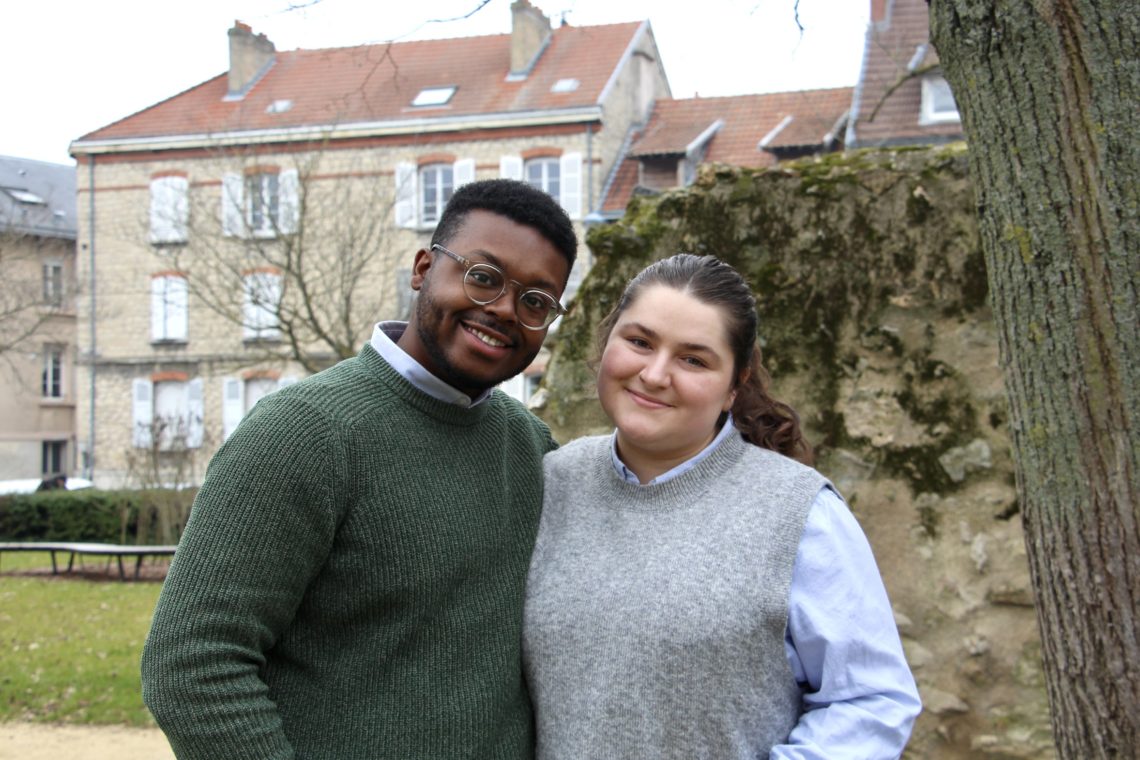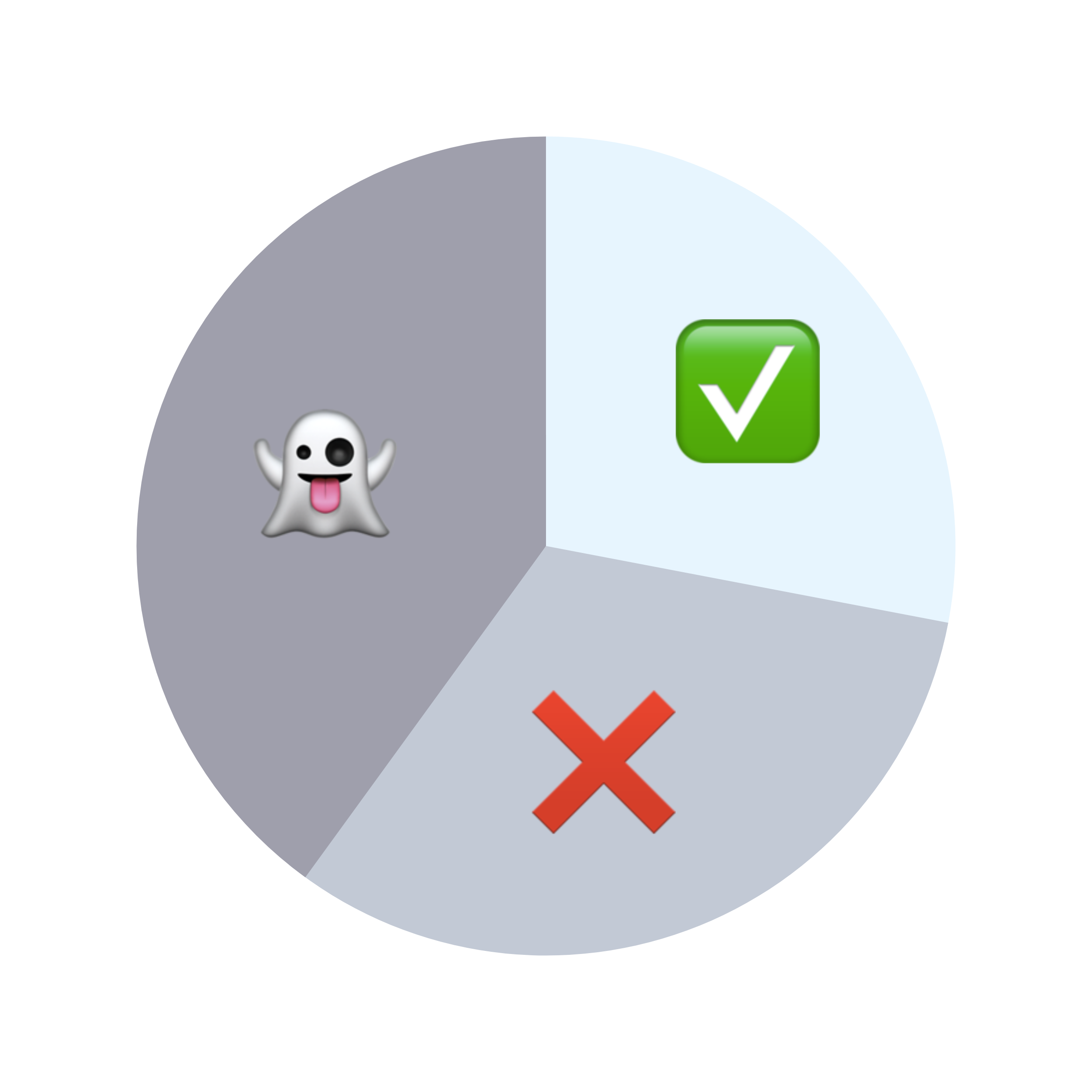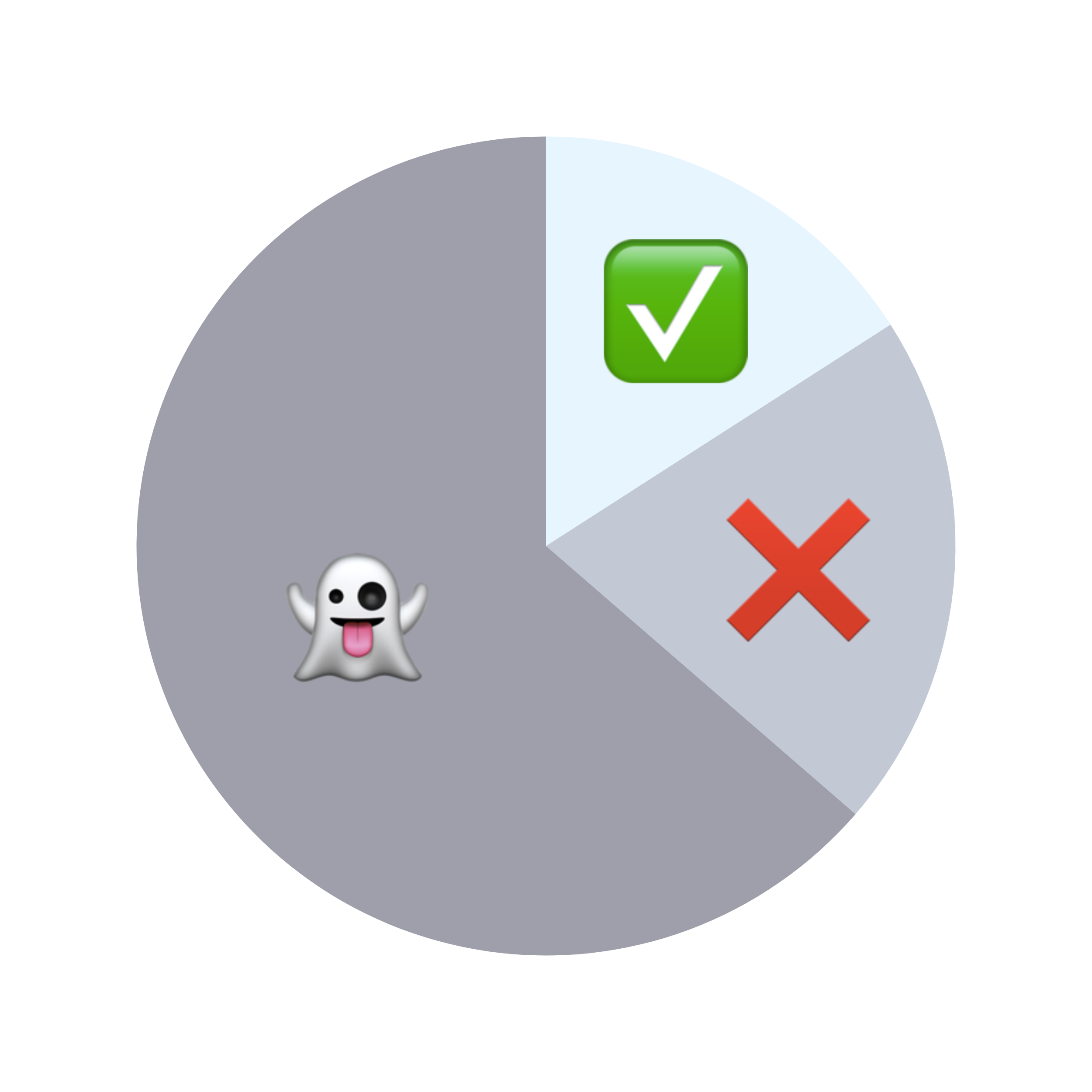
How to Get a Full-Time Job in France After Your Studies as an American
It’s official, after two years of graduate studies at the Université de Reims Champagne-Ardenne and an intensive job search, we have both found full-time work as Americans in France! Landing gainful employment as a foreigner in France is a feat that many deem next to impossible – especially when pursuing an English-teaching career is off the table. While we would never say it was easy, Maria and I want to showcase our success to demonstrate that finding a job in France after your studies is within reach for foreigners.
Let’s start from the beginning, years before we started our job search.
Maria and I began our master’s degrees in 2020 at a public university in Reims, France where she pursued studies in Public Law: European Integration and Global Governance and I took on a degree in Production, Logistics, and Procurement Management: Sustainable Logistics and Supply Chain Management. We both graduated with honors in 2022 and consequently became eligible for France’s recherche d’emploi ou création d’entreprise residence permit (RECE).
The RECE, or the job seeker/new business creator residence permit, gives recent graduates having completed a qualifying degree program in France one year to look for work, get professional experience, or start a business. Qualifying graduates can apply for the RECE from within France in the form of a carte de séjour before the expiration of their student residence permit or from their home country in the form of a visa de long séjour valant titre de séjour within four years of finishing their studies. Maria and I opted to apply from within France before the expiration of our student residence permits.
Taking the master’s-degree-to-RECE route gives RECE holders a number of important benefits that facilitate the job hunt in France.
First of all, the permit grants holders the right to remain in France to both look for work and to work legally for a year. This means that RECE holders can focus 100% of their time on finding employment rather than having to find a job in the midst of their studies. Moreover, once RECE holders find a job, they can begin working immediately without needing to apply upfront for an autorisation de travail (work permit) or a changement de statut (residency status change).
When the year is up, the RECE holder has found a job, and it’s time to change residency statuses from RECE to travailleur temporaire (temporary worker status) or salarié (salaried worker status), foreigners on the master’s-degree-to-RECE path enjoy yet another benefit. In many cases, when an employer applies for an autorisation de travail for a foreigner, it is imperative that the employer prove that they have completed an unfruitful preliminary search for candidates already present on the job market. In short, the employer often needs to demonstrate that the job listing has been posted for three weeks and no suitable candidates with the right to work have been found. However, if the RECE holder finds a job in line with their studies with a salary of at least 1.5 times the SMIC (minimum wage), then their employer will be exempt from this condition when applying for the autorisation de travail that will allow the RECE holder to complete their changement de statut.
Still with us?
Despite the complicated rules, the RECE really does make finding work in France simpler. There is, of course, one glaring downside to the RECE – it’s not a renewable status, meaning that once you’ve got it, you really only have one year to find work. This reality can steer people away from taking advantage of the RECE, opting instead to try…
- taking competitive exams that guarantee job placement (such as the Cafep-Capes for certified teachers)
- enrolling in another university program (in hopes of continuing to hold a renewable student residency status)
- searching for jobs in France from their home country (thereby removing the time limit but also all of the RECE benefits)
- attempting to find a job in France while completing another mission (like being a language assistant or an au pair)
…and any number of other workarounds that they feel are less risky than the RECE. However, intimidating as it may be, we believe that one year on the RECE is an incredible opportunity that can lead to gainful employment if you play your cards right.
Here’s how we went about making the most of the RECE.
We knew before we applied to our master’s degrees that we wanted to get the RECE upon completion of our studies. Therefore, we did thorough research beforehand to ensure that the programs to which we were applying would provide us with the necessary skills and knowledge to be competitive candidates on the French job market. It’s imperative to read the débouchés (job prospects) and insertion professionnelle (employability) sections when deciding which programs interest you. You should also pay close attention to how much professional experience you will gain during your degree and what research projects you will complete – both of which are valuable to future employers. If you want to find a job using the RECE, you need to select a master’s degree that gives you a fighting chance. That’s one of the reasons Maria and I decided to study Public Law and Logistics.
Another defining aspect of finding work in France is how well you are able to speak the language. While it’s possible to only consider jobs where you’ll speak little to no French, your options will be extremely limited. For the best chance of finding work in France as a foreigner, we recommend that you speak fluent French and have the ability to talk about specialized topics in your field without any trouble. If you aren’t confident in your language abilities or chose to do a master’s degree taught in English, you’ll need to get serious about learning French so that you can comfortably write CVs and cover letters, shine during interviews, and hold your own in the workplace. Maria and I reached C2-level fluency before we ever moved to France, and we cannot overstate how much our language mastery has facilitated our journey as Americans abroad.
With these preliminary suggestions in mind, we’d like to share the nitty-gritty details of our actual job hunt.
Though Maria and I both did master’s degrees at the Université de Reims Champagne-Ardenne and got the RECE at the same time, we had very different experiences looking for work in France. First, I’ll explain how I found a Logistics role in the Agri-food sector. Thereafter, we’ll look into Maria’s path to finding a position dealing with International Relations in the context of Higher Education.
I began applying to jobs on October 14th, 2022 and started working on November 21st, 2022, meaning my job search lasted for 38 days. In all, I sent out 25 applications using online platforms including LinkedIn, Indeed, and company-specific online applications. Of the 25 applications, I had seven positive responses, eight rejections, and ten companies didn’t respond at all. In total, I completed five interviews, three of which were with the company that hired me.


One important takeaway from my job search is that when you study an in-demand field, you can expedite the process of landing a job substantially.
From start to finish, it only took me about five weeks to find employment and get to work, meaning that I avoided months of stress and began my career in France pretty much immediately. Finding the sweet spot between choosing a field that you love and one that is highly sought after can be tough, but the research and self reflection that I did before starting my master’s degree in Logistics certainly paid off.
I also believe that the professional experience I gained at my four-month internship and year-long alternance (work-study internship) during my graduate studies played a vital role in my job hunt.
Many fresh graduates have CVs that suggest very little insight into the working world, but that was not the case for me! I had practical expertise in a variety of areas that piqued different companies’ interest and the ability to produce real-life examples of my skills during interviews. I’m convinced that working relevant jobs as a student gave me a leg up.
As for Maria, her job search began on October 25th, 2022 and she started working on March 1st, 2023, making her process four months and four days long. She sent out a total of 44 applications using online platforms including LinkedIn, Indeed, Welcome to the Jungle, Coordination Sud, Jobs Projets Européens, and organization-specific online applications. Of the 44 applications, she received seven positive responses, nine rejections, and 28 establishments didn’t respond at all. All together, she completed nine interviews, three of which were with the organization that hired her.


Maria’s job search experience demonstrates the power of being a well-rounded candidate.
Potential employers took great interest in her versatile background and were impressed not only with her master’s degree, but also with the jobs that she worked during her bachelor’s degree at the University of Mary Washington, her time as a language assistant with the Teaching Assistant Program in France (TAPIF), her internship at a French humanitarian organization, her master’s thesis, her role in running The Francofile, and her contributions to Campus France’s blog des E-Ambassadeurs. Her various accomplishments illustrate her polyvalence (versatility), a skill that is valued by French employers.
Moreover, the ability to describe her credentials to people who were unfamiliar with them was key for Maria’s job hunt.
For example, Maria’s master’s degree in Public Law: European Integration and Global Governance isn’t a standard program offered in universities all over France, but a specialized one that combines Public Law, International Relations, and Political Science. This meant that potential employers weren’t always knowledgable about the coursework she had completed – so, it was up to her to explain it clearly, concisely, and in a way that showcased her expertise. In her interviews, Maria succeeded not only in clarifying what she studied, but proving that her education would make her an outstanding employee.
All things considered, Maria and I are proud to have gotten our master’s degrees and used the RECE to start our lives as young professionals in France.
We sincerely believe that studying at French public university and devoting one year to a serious job search is a recipe for finding work in France as a foreigner. Now that we’re on the other side of constantly writing cover letters and endlessly waiting by the phone, we’re ecstatic to be proof that where there’s a will, there’s a way. Many are quick to say that finding a job in France is hopeless, and we hope to illustrate to other foreigners that difficult does not mean impossible.
Whether you’re just beginning your preliminary research about moving to France, are well on your way to finding French employment, or are simply reading to learn more about our lives, Maria and I are excited to be a resource for you by expanding our content to cover our experiences in the French working world. We have so much more to share with you on this topic, and now that you know the details of how we got full-time jobs in France after our studies, we hope you’ll stick around to find out more! If you have questions about how we found work as Americans in France, leave us a comment!
You may also like…
Here’s how we found jobs in France as Americans!
Our answers to your questions about working in France!
Discover the best parts of getting a master’s degree in France!
Discover the worst parts of getting a master’s degree in France!
You May Also Like

Applying for a Master’s Degree in France: How to Know If You’ll Be Accepted
November 18, 2020
Studying in France as Americans: One Calendar Year in the Books
September 15, 2021


8 Comments
Andrea
Félicitations ! It sounds like France might be your permanent home. Are you staying in Reims?
I can’t wait to hear more about your new experiences in the work world.
Jalen & Maria
Thank you! We are not staying in Reims. More information on that coming shortly.
Nicolette
Thank you such much for this incredibly thorough article! This is the visa I plan on applying to after school, so it was incredibly helpful. Did you move before or after securing your jobs? I ultimately want to move from the South to Paris, but am deciding if I should complete my job search before moving (and finding a new apartment…since I know the visa requires proof of a permanent address?).
Jalen & Maria
Hi, Nicolette! We are so glad that this article has been useful for you! For more information about the RECE, feel free to check out the article we dedicated to that subject. To answer your question, we moved after securing our jobs.
ANNA
Hi, thank you for creating such quality and engaging content. I’ve been bingeing on your articles about your Master’s programs and professional life in France. 🙂
As I’m planning to do a Master’s degree in Logistics in Reims later this year, I’d love to know more about Jalen’s one-year alternance and how you got this type of contract. Hoping that I’ll have the time of my life in France hehe!
Jalen & Maria
Hello, thanks for reading our articles! As far as getting my alternance contract, in my program at the Université de Reims Champagne-Ardenne, the alternance was built in. Therefore, we were strongly encouraged to find establishments willing to take us on as alternants. I happened to do my alternance at the same place that I had done a stage previously. In any case, looking for an alternance isn’t much different than looking for a stage. Once you know your rhythme (your time spent in class versus your time working) you can begin applying to companies that interest you.
Annette Ayzichek
Hello!
Thank you for this incredibly clear and detailed article – it has been very helpful in my own efforts to get settled down with a full time job here in France. There’s one thing I wanted to clarify, so I was hoping you could help me out (and hopefully the answer to this question hasn’t changed since you two went through it).
You mentioned that “if the RECE holder finds a job in line with their studies with a salary of at least 1.5 times the SMIC (minimum wage), then their employer will be exempt from this condition [justifiying hiring you] when applying for the autorisation de travail.” What happens if this is not the case, if the job you find does not meet the salary requirements – does that condition then apply and you can still do that job as long as the employer fulfills it, or can you not do that job no matter what? I seem to be finding lots of conflicting information on this topic so I’m hoping for some written proof on the specific conditions of this titre de séjour in these circumstances.
Thank you in advance for your help 🙂
Jalen & Maria
Hello Annette,
Thank you for reading our blog! We are glad that it has been helpful to you so far. We would be happy to tell you our understanding of the process.
If you are a RECE holder looking to stay in France beyond the duration of your RECE status, you will have to find a way to successfully change to a different status before the RECE’s one-year clock comes to an end. If you would like to accomplish this by switching to either salarié or travailleur temporaire status towards the end of your RECE’s validity, you will need to obtain an autorisation de travail.
Typically, when employers in France ask for autorisations de travail on behalf of their foreign employees/candidates, they will need to prove that they were not able to successfully recruit someone already possessing the right to work to fill the role. Therefore, the French authorities will ask employers soliciting said autorisation de travail to show that the job posting was posted on a public job site like France Travail (formerly Pôle Emploi) for at least 3 weeks and that no suitable candidates were found. Naturally, the employer would also have to demonstrate why any other candidates who may have applied were not suitable, but you were.
There are ways, however, to bypass the need to prove any of that when soliciting an autorisation de travail. You understood correctly that if a RECE holder finds a job in line with their studies with a salary of at least 1.5 times the SMIC, then they can bypass the need to prove the things previously mentioned, and that their autorisation de travail will be granted. This advantage comes from being a RECE holder who has met the salary requirements and found a job in their field of study. Therefore, a RECE holder that does not meet the salary and/or relevance-to-studies conditions will not be able to benefit from the facilitated path to obtaining an autorisation de travail, which is the key document that will permit a RECE holder to switch to salarié or travailleur temporaire status once their RECE status has come to an end.
A RECE holder that does not meet the salary and/or relevance-to-studies conditions is still able to obtain an autorisation de travail (meaning they are granted permission to work said job), however the request will be subject to proving an unfruitful preliminary search for candidates with working rights and justifications for choosing you. The request can be denied based on these factors, in which case you would not have the autorisation de travail that would allow you to make the switch off of the RECE and on to salarié or travailleur temporaire when the time comes.
We hope this helped clear things up for you. Don’t hesitate to ask us more questions if you have them. Good luck!
Here are some resources for you:
https://www.service-public.fr/particuliers/vosdroits/F17319
https://www.service-public.fr/particuliers/vosdroits/F3100
https://www.service-public.fr/particuliers/vosdroits/F2728
https://www.campusfrance.org/fr/carte-sejour-recherche-emploi-creation-entreprise